第67章 MONEY OR SIMPLE CIRCULATION(48)
"The dearness of everything,"says Hume,"from plenty of money,is a disadvantage,which attends an established commerce,and sets bounds to it in every country,by enabling the poorer states to undersell the richer in all foreign markets.""Where coin is in greater plenty;as a greater quantity of it is required to represent the same quantity of goods;it can have no effect,either good or bad,taking a nation within itself;any more than it would make an alteration on a merchant's books,if,instead of the Arabian method of notation,which requires few characters,he should make use of the Roman,which requires a great many.Nay,the greater quantity of money,like the Roman characters,is rather inconvenient,and requires greater trouble both to keep and transport it."If this example were to prove anything,Hume would have to show that in a given system of notation the quantity of characters employed does not depend on the numerical value,but that on the contrary the numerical value is determined by the quantity of characters employed.It is quite true that there is no advantage in evaluating or "counting"commodity values in gold or silver of diminished value;and as the value of the commodities in circulation increased,therefore,nations invariably decided that it was more convenient to count in silver than in copper,and in gold than in silver.In the proportion that nations grew richer,they turned the less-valuable metals into subsidiary coin and the more valuable metals into money.Hume,moreover,forgets that in order to calculate values in terms of gold and silver,neither gold nor silver need be "present".Money of account and means of circulation are for him identical phenomena and he regards both as coin.Because a change in the value of the standard of value,i.e.in the precious metals which function as money of account,causes a rise or fall in commodity-prices,and hence,provided the velocity of money remains unchanged,an increase or decrease in the volume of money in circulation,Hume infers that increases or decreases of commodity-prices are determined by the quantity of money in circulation.Hume could have deduced from the closing down of European mines that not only the quantity of gold and silver grew during the sixteenth and seventeenth centuries,but that simultaneously their cost of production diminished.Along with the volume of imported American gold and silver commodity-prices rose in Europe in the sixteenth and seventeenth centuries;commodity-prices are consequently in every country determined by the volume of gold and silver which the country contains.This was the first "necessary consequence"drawn by Hume.Prices in the sixteenth and seventeenth centuries did not rise in step with the increased amount of precious metals;more than half a century elapsed before any change at all was noticeable in the prices of commodities,and even after this a considerable time elapsed before the prices of commodities in general were revolutionised,that is before the exchange-values of commodities were generally estimated according to the diminished value of gold and silver.Hume --who quite contrary to the principles of his own philosophy uncritically turns unilaterally interpreted facts into general propositions --concludes that,in consequence,the price of commodities or the value of money is determined not by the absolute amount of money present in a country,but rather by the amount of gold and silver actually in circulation;in the long run,however,all the gold and silver present in the country must be absorbed as coin in the sphere of circulation.[2]It is clear,that,if gold and silver themselves have value,quite irrespective of all other laws of circulation,only a definite quantity of gold and silver can circulate as the equivalent of a given aggregate value of commodities.Thus,if without reference to the total value of commodities,all the gold and silver that happens to be in the country must participate as means of circulation in the exchange of commodities,then gold and silver have no intrinsic value and are indeed not real commodities.
This is Hume's third "necessary consequence".According to Hume,commodities without price and gold and silver without value enter the process of circulation.
He,therefore,never mentions the value of commodities and the value of gold,but speaks only of their reciprocal quantity.Locke had already said that gold and silver have a purely imaginary or conventional value;this was the first blunt opposition to the contention of the Monetary System that only gold and silver have genuine value.The fact that gold and silver are money only as the result of the function they perform in the social process of exchange is thus taken to mean that their specific value and hence the magnitude of their value is due to their social function.[3]Gold and silver are thus things without value,but in the process of circulation,in which they represent commodities ,they acquire a fictitious value.